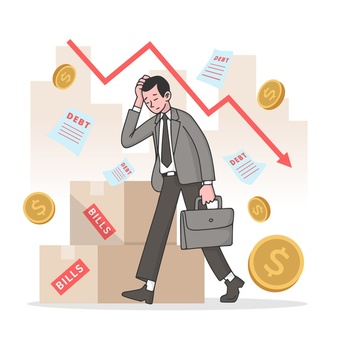If you’re running out of ideas to catch up on missed loan payments, you might have thought of the idea of filing bankruptcy. But when would be the perfect time to file bankruptcy? Admitting that you need help to get out of debt may be hard at first, but you are not alone. To help you decide if you should get started with the bankruptcy process, Phoenix Fresh Start has compiled below several ways to help you determine the best debt relief for you.
Bankruptcy laws were created by the government to protect creditors and also consumers. By working with a good bankruptcy attorney and the right legal knowledge, a bankruptcy petition can be your best chance to regain your financial freedom. But sometimes, it may not be the right time to file bankruptcy.
Assess Your Financial Situation
Oftentimes, borrowers fail to maintain an updated inventory of their liquid assets (stocks, bonds, retirement accounts, real estate, bank and savings accounts, other properties) which leads to a miscalculation on how they are financially.
Debtors filing bankruptcy nowadays have gone through a personal assessment of their financial capabilities. The following are evidence that a borrower is already in a financial danger zone:
- You are only able to cover the minimum payments for your credit cards
- Creditors are calling and demanding payment.
- You are having a hard time managing finances.
- You feel out of control in terms of your finances and debt.
- You purchase necessities only with the use of a credit card.
- You are unsure of the amount you owe and are thinking about debt consolidation.
As a general rule, if the total value of your properties and assets you need to pay back your lenders is lower than the total amount of debt, then it is probably the best time to declare bankruptcy.
Identify Your Reasons for Filing Bankruptcy
Most bankruptcy applications are a consequence of sudden unemployment, overwhelming medical expenses, or overextended credit. But two people going through the same financial problems can have varying expectations that push them to pursue bankruptcy. This is why you need to be self-aware of what you want to happen when you file bankruptcy.
Knowing your reason will help you and your bankruptcy attorney pick the right type of bankruptcy. Below are the most common targets for bankruptcy case filers:
- Halt a home foreclosure or repossession
- Stop creditor harassment
- Prevent wage garnishment
- Want to discharge most if not all debts
- Keep certain properties (exempt)
- Restore utility services by paying a small deposit
- Have your driver’s license reinstated
Declaring Bankruptcy: Chapter 7 or Chapter 13?
 There are different types of bankruptcies but only one is the best fit for you. Most bankruptcy petitions fall under either Chapter 7 or Chapter 13 bankruptcy. Although the first three reasons may apply to both chapters, there are several differences you need to consider.
There are different types of bankruptcies but only one is the best fit for you. Most bankruptcy petitions fall under either Chapter 7 or Chapter 13 bankruptcy. Although the first three reasons may apply to both chapters, there are several differences you need to consider.
Chapter 7 or straight bankruptcy is ideal for those who want to wipe out most debts in exchange for giving up your assets. Your properties will be placed in an estate, sold, and then liquidated to your creditors. As a bonus, you receive the discharge notice in as fast as four months after the date of your bankruptcy filing.
But if you want to hold on to your estate, Chapter 13 is the better option. This is known as reorganization bankruptcy because it allows you to pay off your balances over a three-to-five-year period. However, you can only qualify for this type of bankruptcy if you can demonstrate a stable source of income and the capacity to repay your creditors.
When Not to File for Bankruptcy
Now that you know the indicators for filing bankruptcy, you should also be familiar with the signs that point to the idea that “now is not the time for bankruptcy”.
- You’re not prepared to suffer a negative credit rating for the next few years.
- You don’t want to give up the property you have not paid for in full.
- There is a previous record of a bankruptcy discharge in the past eight years (for Chapter 7 filers).
- You want to eliminate debts that are non-exempt and nondischargeable: unpaid child support or alimony, student loans, state or federal taxes, fines or penalties due to criminal activities, fraud, theft, embezzlements, or driving under the influence (DUI)
- You want to remove yourself from a security interest.
- You already received an eviction order before filing bankruptcy.
- There are cosigners in your loan.
- You plan to discharge debts you incurred after filing bankruptcy.
For most debtors, deciding whether or not to file bankruptcy is not the only concern. Like them, you also want to prepare yourself for what your life will be after your bankruptcy case is closed. This is why several bankruptcy firms such as Phoenix Fresh Start Bankruptcy Attorneys offer bankruptcy attorney services plus a free credit rebuilding program. If you need help filing bankruptcy in Arizona or deciding if it is the right time for you, schedule a free consultation with one of our bankruptcy lawyers. Call us today and get started in obtaining debt relief.











